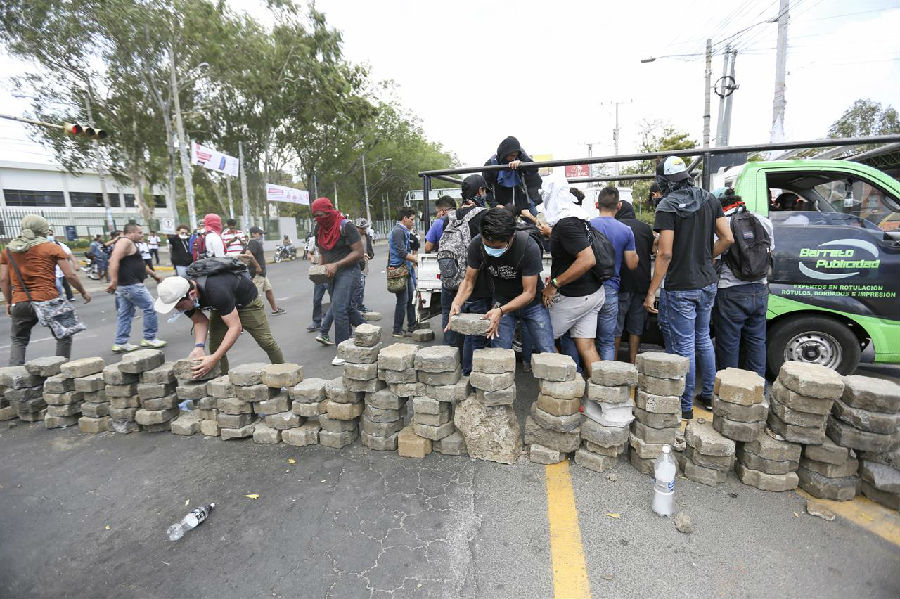Hari Sreenivasan: Many of the migrants crossing the southern border with the United States are fleeing violence in their home countries in Central America, most often Honduras, Guatemala, and El Salvador. But there is another crisis in the region, this time in Nicaragua, where Daniel Ortega's government's proposed cuts to pensions and social security in April triggered violent protests. Peace talks started, but in the past few weeks, government-backed forces began attacking groups demanding Ortega's resignation. Joining us now from Mexico City is Elisabeth Marlin, a reporter for The New York Times, who covers Central America. She is just back from Nicaragua, where she witnessed a battle in the town of Masaya earlier this week. Thanks for joining us.

Elisabeth Marlin: First of all, what are the core issues that people are fighting over or pushing back against? Well, Daniel Ortega won election 11 years ago. And when did he that, he began to take over control of all the branches of government. So basically, Daniel Ortega has control over the supreme court, the legislature, the electoral tribunal, and people really feel that this is turning into a one-party state. You have to you know, be loyal to the government in order to get basic benefits. You have to join the party in order to get any access to government jobs. And you know the proximate cause was the cuts to social security and so what began as peaceful protest suddenly this changed when the government fired on people. And social media had an enormous effect because what you had were pictures of elderly people being beaten up by crowds loyal to Daniel Ortega. And this spread rapidly through social media. And that created outrage and turned into this large opposition that has shown no signs of folding. And they want Daniel Ortega out. They want him out now. And they won't take anything less.
Hari Srinivasan: What's the status of any peace talks or any mediating forces here?
Elisabeth Marlin: There's a broad alliance called the Aliana Civica and it really includes groups that normally would never talk to each other. What it doesn't include is politicians, which perhaps is a good thing. But it includes the business community, student groups who have been very important in there, farmers groups. There are feminist groups. The mediators are the church, which is highly respected in Nicaragua. And Daniel Ortega himself asked for the church to mediate. But at the same type, the church has been instrumental in trying to stop the violence. So, these talks have been really going on since the end of April. And what the coalition of opposition organization would like is you know a discussion on early elections, on human rights, on some kind of trial, justice for what is now over 200 deaths, and reforms that will allow some kind of return to democracy where this one-party, one-man rule is dismantled.
Hari Srinivasan: All right, Elisabeth Marlin of The New York Times joining us by phone from Mexico City. Thanks so much.
Elisabeth Marlin: Thank you very much for having me.












